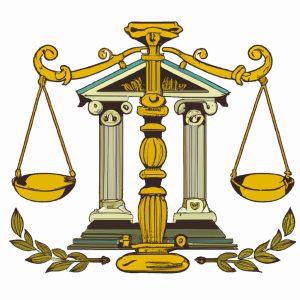Navigating the complexities of probate can be a daunting task for many individuals, especially when it comes to understanding the associated costs. In Tennessee, the expenses tied to probate proceedings can vary significantly depending on various factors. As seasoned legal professionals at Morgan Legal Group, we are well-versed in the nuances of probate costs in Tennessee and stand ready to guide you through this intricate process with clarity and expertise. Join us as we delve into the intricacies of probate expenses in the state of Tennessee, shedding light on the financial implications of settling an estate through probate.
Understanding the Expenses Involved in Probate Proceedings in Tennessee
Probate proceedings in Tennessee can involve various expenses that need to be considered. Understanding these costs is essential for individuals navigating the probate process. Some common expenses involved in probate proceedings in Tennessee include:
- Court Fees: There are filing fees associated with initiating probate proceedings in Tennessee.
- Attorney Fees: Legal representation is crucial during probate proceedings, and attorneys typically charge fees for their services.
- Executor Fees: The person appointed as the executor of the estate may be entitled to compensation for their time and efforts in managing the probate process.
- Appraisal Fees: Valuing and appraising the assets of the estate can also incur costs.
| Expense | Estimated Cost |
|---|---|
| Court Fees | $200-$400 |
| Attorney Fees | Varies depending on the complexity of the estate |
| Executor Fees | Typically a percentage of the estate’s value |
| Appraisal Fees | $500-$2,000 |
Factors Influencing the Cost of Probate in Tennessee
can vary depending on various circumstances. Understanding these factors can help individuals plan ahead and navigate the probate process more effectively. Some key factors that can affect the cost of probate in Tennessee include:
- The size and complexity of the estate: Larger estates with more assets and complicated financial holdings may require more time and resources to probate, resulting in higher costs.
- Disputes among beneficiaries: If there are disagreements or conflicts among beneficiaries or potential heirs, this can lead to litigation and legal fees that increase the overall cost of probate.
In addition, other factors such as the choice of executor, location of the probate court, and potential challenges to the validity of the will can also impact the cost of probate in Tennessee. It is essential to consult with an experienced probate attorney to understand these factors and develop a strategy that minimizes costs while ensuring a smooth probate process.
Minimizing Probate Costs through Strategic Estate Planning
When it comes to estate planning in Tennessee, one of the most common concerns for individuals is the cost associated with probate. Understanding the expenses involved in the probate process can help individuals effectively plan their estates and minimize costs through strategic estate planning. By working with experienced estate planning attorneys, individuals can navigate the complexities of probate and mitigate potential financial burdens.
Probate costs in Tennessee can vary depending on several factors, including the size of the estate and the complexity of the assets involved. Some of the common expenses associated with probate in Tennessee include court fees, attorney fees, executor fees, appraisal fees, and other administrative costs. By implementing strategic estate planning techniques such as creating a trust, designating beneficiaries, and properly titling assets, individuals can minimize probate costs and ensure a more efficient distribution of their assets to their beneficiaries.
Seeking Professional Guidance for Efficient Probate Administration
When considering the cost of probate in Tennessee, it is important to understand that the fees associated with the probate process can vary depending on several factors. These factors include the size and complexity of the estate, as well as the services of any professionals hired to assist with the administration. Hiring a probate attorney is often recommended to guide you through the process efficiently and effectively.
At Morgan Legal Group, our experienced attorneys can provide you with the professional guidance you need to navigate the probate process in Tennessee. By working with our team, you can ensure that the administration of the estate is handled efficiently, minimizing costs and delays. Contact us today to learn more about how we can assist you with probate administration.
Q&A
Q: What is probate and why is it necessary in Tennessee?
A: Probate is the legal process in which a deceased person’s assets are distributed to their heirs. It is necessary in Tennessee to ensure that the deceased person’s debts are paid and their assets are distributed according to their will or state law.
Q: How much does probate typically cost in Tennessee?
A: The cost of probate in Tennessee can vary depending on several factors, such as the size and complexity of the estate. However, on average, probate costs in Tennessee can range from a few thousand dollars to tens of thousands of dollars.
Q: What are some of the expenses that can be incurred during probate in Tennessee?
A: Some common expenses incurred during probate in Tennessee include court fees, attorney fees, appraiser fees, executor fees, and accounting fees. Additionally, there may be other expenses such as publication fees, bond fees, and other miscellaneous costs.
Q: Are there any ways to reduce the cost of probate in Tennessee?
A: Yes, there are several ways to reduce the cost of probate in Tennessee. One option is to create a comprehensive estate plan that includes a will, trusts, and other estate planning tools. Another option is to designate beneficiaries on assets such as bank accounts and retirement accounts, which can bypass probate altogether.
Q: How long does probate typically take in Tennessee?
A: The length of time it takes to complete probate in Tennessee can vary depending on the complexity of the estate and any disputes that may arise. On average, probate in Tennessee can take anywhere from six months to two years to complete.
To Conclude
In conclusion, understanding the costs associated with probate in Tennessee is essential for anyone navigating the legal process after the passing of a loved one. While the fees and expenses can vary depending on the complexity of the estate, being aware of the potential costs can help you plan and budget accordingly. Remember to consult with an experienced probate attorney to guide you through the process and ensure a smooth and efficient administration. Thank you for reading and we hope this information has been helpful in demystifying the probate costs in Tennessee.
Probate refers to the legal process of administering a deceased person’s estate and distributing their assets to the intended beneficiaries. This includes settling any outstanding debts and taxes, identifying and valuing the assets, and ensuring that the distribution of assets complies with the deceased person’s will or state laws. In Tennessee, probate costs can vary depending on certain factors. In this article, we will delve into the details of how much probate costs in Tennessee and what factors can affect these expenses.
Costs Involved in the Probate Process
The probate process in Tennessee involves several expenses which are typically paid out of the deceased person’s estate. These costs include court fees, attorney fees, appraisal fees, and executor fees. Here is a breakdown of each of these expenses and how they can affect the overall cost of probate in Tennessee.
1. Court Fees
One of the primary expenses involved in probate is court fees. In Tennessee, the probate process takes place in the county where the deceased person lived. The cost of filing for probate in Tennessee varies by county, but usually ranges from $100 to $200. In addition to the filing fee, there may be additional fees for filing certain types of documents, such as a petition for probate or an inventory of assets.
2. Attorney Fees
Many people choose to hire an attorney to assist them with the probate process. While it is not mandatory to have legal representation, it can be helpful in navigating the complexities of probate. Attorney fees in Tennessee can vary greatly depending on the attorney’s experience and the complexity of the case. In general, attorney fees are calculated based on a percentage of the estate’s value. The percentage can vary from 1% to 4% of the estate’s value. For example, if the estate is worth $500,000, the attorney fees could range from $5,000 to $20,000.
3. Appraisal Fees
During the probate process, all assets of the deceased person must be identified and valued. This is where appraisal fees come in. Depending on the complexity and number of assets, these fees can range from a few hundred dollars to several thousand dollars. The appraiser will typically charge a percentage of the appraised value of the assets.
4. Executor Fees
The executor, who is responsible for overseeing the probate process, is also entitled to a fee for their services. In Tennessee, the executor can be a family member or a professional appointed by the court. The executor fees are typically calculated based on a percentage of the estate’s value, similar to attorney fees. The executor fees can range from 1% to 4% of the estate’s value.
Other Factors That Can Affect Probate Costs
In addition to the expenses mentioned above, there are a few other factors that can affect the overall cost of probate in Tennessee.
1. The Type of Probate
In Tennessee, there are two types of probate: formal and summary. Formal probate is required for estates with a value of more than $50,000, while summary probate is used for smaller estates. The filing fees for formal probate are higher, which can increase the overall cost of probate.
2. The Complexity of the Estate
If the deceased person’s estate is complex, with multiple assets and debts to be settled, the probate process can be more complicated and time-consuming. This can result in higher attorney and executor fees, as well as additional costs for appraisals and court filings.
3. Disputes Among Heirs
In some cases, there may be disputes among the beneficiaries of the estate. This can lead to legal battles, which can significantly increase the cost of probate. It is important for families to try and resolve any disputes before they escalate, to keep probate costs manageable.
4. State Laws
Each state has its own set of laws regarding probate, which can affect the costs involved. In Tennessee, there is no inheritance tax, but the estate may be subject to federal estate tax if it exceeds $11.7 million in value. It is important to consult with a legal professional to understand the tax implications for a particular estate.
Tips for Reducing Probate Costs in Tennessee
While the probate process can be costly, there are some ways to reduce the overall expenses involved.
1. Create a Living Trust
By creating a living trust, you can avoid the probate process altogether. With a living trust, assets are transferred to a beneficiary outside of the probate process, and this can help to lower the probate costs.
2. Plan Ahead
Probate can be a lengthy process, especially if there are disputes or complications. By planning ahead and creating a comprehensive estate plan, you can save your loved ones from the added burden of a lengthy and expensive probate process.
3. Keep Good Records
Keep a detailed record of all your assets and debts, as well as any changes to beneficiaries, to make the probate process smoother and more efficient.
First-Hand Experience
To get a better idea of the probate costs in Tennessee, we spoke with John, who recently went through the probate process after his father passed away. “We were not prepared for the costs involved in probate,” John recalls. “With court fees, attorney fees, and other expenses, it added up to almost $15,000. It was a difficult time for our family, and the added financial burden was tough.”
The Bottom Line
The cost of probate in Tennessee can vary depending on various factors. Planning ahead, keeping good records, and communicating clearly with family members can help to reduce probate costs. Consult with a legal professional to understand the specific costs involved in your unique situation and explore ways to minimize them.






